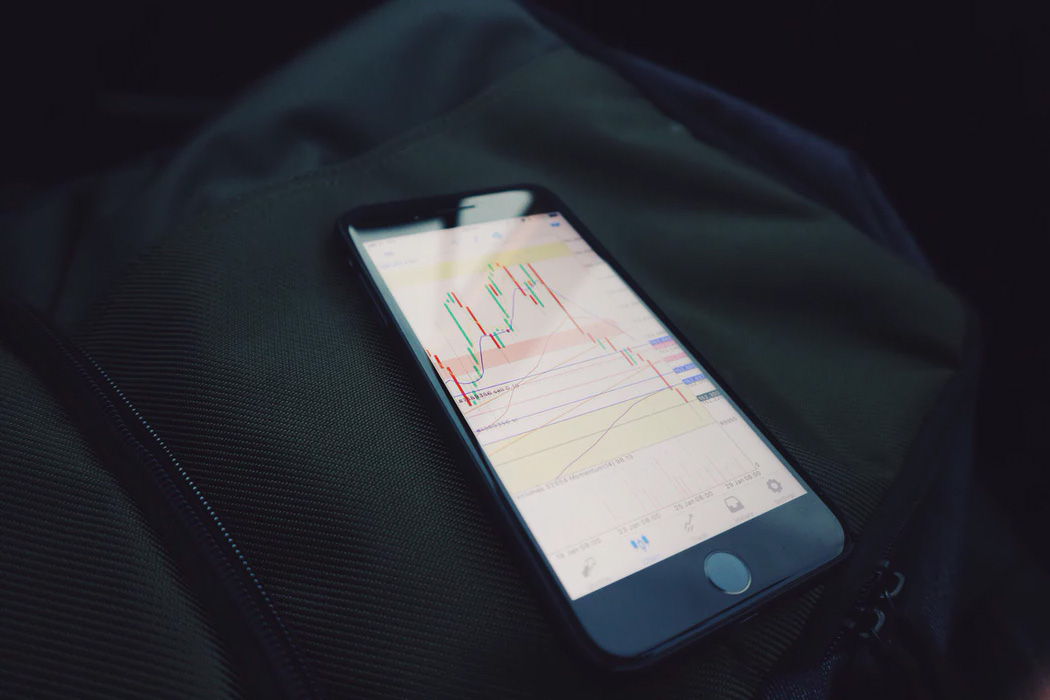Virtual Stock Market: A Step-by-Step Guide
We usually think that investing in a virtual stock market is quite difficult, requires a lot of complex calculations and requires a huge investment to get started. However, in this step-by-step guide, we will explain how easy and cost effective it is to invest in the virtual stock market. Is it possible? The answer is a loud YES.
Don't let the sheer amount of data, numbers and graphs confuse you, they are easier to interpret and analyze than they might seem. And by knowing how to use them, we will see how investing in the stock market becomes completely simple and allows us to make money.
Don't let the sheer amount of data, numbers and graphs confuse you, they are easier to interpret and analyze than they might seem. And by knowing how to use them, we will see how investing in the stock market becomes completely simple and allows us to make money.
Step 1 - Introducing the virtual portfolio
What is a virtual portfolio? This is a space in which its participants conduct transactions with financial products such as bonds, stocks, bills of exchange, obligations. It involves private companies, governments and individuals who purchase and sell these financial products for the purpose of obtaining liquidity, investment or savings, as the case may be. This organization is private, but regulated by a government agency depending on the country, which provides a greater guarantee of transparency for those who participate in it. The stock exchange has systems for informing the prices of the instruments that are traded on it in real time, in addition to the fact that only registered persons or companies can operate on it.
What are promotions? Typically, a share is a portion of the capital of a company (eg Coca Cola). In other words, the company is divided into small portions of equal value, which are then put up for sale on the stock market, and which can be acquired by other companies or individuals. This gives the buyer (called a shareholder) certain rights and obligations within the company, such as the right to receive a prorated portion of the profits (dividends) and vote at a shareholders meeting (this depends on the percentage of shares he owns.). Companies issue shares to generate income, which can then be reinvested within the company itself. What are the actions? However, there are several types of shares that we think you should know better: * Ordinary shares: these are ordinary shares that give the right to receive dividends and the right to vote on the board of directors * Preference shares: they have priority over the payment of dividends * Shares without voting rights: give the right to receive dividends, but not to participate in the meeting of shareholders.
What is a virtual portfolio? This is a space in which its participants conduct transactions with financial products such as bonds, stocks, bills of exchange, obligations. It involves private companies, governments and individuals who purchase and sell these financial products for the purpose of obtaining liquidity, investment or savings, as the case may be. This organization is private, but regulated by a government agency depending on the country, which provides a greater guarantee of transparency for those who participate in it. The stock exchange has systems for informing the prices of the instruments that are traded on it in real time, in addition to the fact that only registered persons or companies can operate on it.
What are promotions? Typically, a share is a portion of the capital of a company (eg Coca Cola). In other words, the company is divided into small portions of equal value, which are then put up for sale on the stock market, and which can be acquired by other companies or individuals. This gives the buyer (called a shareholder) certain rights and obligations within the company, such as the right to receive a prorated portion of the profits (dividends) and vote at a shareholders meeting (this depends on the percentage of shares he owns.). Companies issue shares to generate income, which can then be reinvested within the company itself. What are the actions? However, there are several types of shares that we think you should know better: * Ordinary shares: these are ordinary shares that give the right to receive dividends and the right to vote on the board of directors * Preference shares: they have priority over the payment of dividends * Shares without voting rights: give the right to receive dividends, but not to participate in the meeting of shareholders.

Virtual Stock Market: A Step-by-Step Guide
Step 2.- Choosing a broker.
To get started on any stock exchange in the world, you need a broker. What is a broker? Simply put, a broker is a natural or legal person authorized to act as an intermediary between buyers and sellers of financial assets in the stock market. To act as such, brokers must be authorized and registered on the exchange they operate on and on the regulatory commissions of these organizations, permissions without which they cannot operate, thus we answer one of the most common questions, among which They begin from the world of investing in the virtual stock market: is it possible to invest in the stock market without a broker? The answer is definitely no.
There are many platforms on the Internet that allow us to invest in the online stock market, each with their own advantages and disadvantages, the fees they charge us for each transaction and the minimum amount to start investing is also different. Each person can choose which broker to use.
To get started on any stock exchange in the world, you need a broker. What is a broker? Simply put, a broker is a natural or legal person authorized to act as an intermediary between buyers and sellers of financial assets in the stock market. To act as such, brokers must be authorized and registered on the exchange they operate on and on the regulatory commissions of these organizations, permissions without which they cannot operate, thus we answer one of the most common questions, among which They begin from the world of investing in the virtual stock market: is it possible to invest in the stock market without a broker? The answer is definitely no.
There are many platforms on the Internet that allow us to invest in the online stock market, each with their own advantages and disadvantages, the fees they charge us for each transaction and the minimum amount to start investing is also different. Each person can choose which broker to use.
I’m making glitter...I’m not the bad guy.
Politics is a set of activities associated with the governance of a country or an area. It involves making decisions that apply to group of members.
Step 3.- What can you invest in the virtual stock market?
Not everything in the virtual stock market is stocks. In fact, there are many financial products that we can invest in, each with its own pros and cons. And knowledge of each of them is necessary so that we can get the maximum possible profit from investing in the stock market.
As you can see, there is a wide variety of opportunities and offers if we want to invest in the stock market, and the choice of one or the other often depends on the profile of the investor in terms of his predisposition to take more or less risk. As we will see later, one of the best options for mitigating this risk, which is always there when we make an investment, is to purchase many products with different characteristics and returns. But we go in parts. Let's continue looking at how to invest in a virtual portfolio for a beginner.
Some assets to start investing in the virtual stock market:
Promotions. These are the most common and highest trading volumes in the stock markets. The profit we make from them is determined by the difference between the price at which we buy them and the price at which we sell them. Their cost depends on many factors that affect the company that issues them. For example, if one of the products that a company sells becomes popular, its sales increase, the value of the company rises, and therefore its share price rises. Otherwise, if, for example, a competitor's product becomes more popular, this will greatly affect the company's income and reduce its sales. The value of the shares will depend on the company that issues them, while the smaller ones cost from a few cents to thousands of dollars for the shares of larger companies.
Is it possible to make money on low-value stocks? And a lot. In addition, we can purchase large quantities with a small investment. This makes it possible to start buying stocks with little capital.
Bonds. These are debt obligations of a company or government. In this case, if we decide to invest in bonds, we must take into account that each of them has a par value, a maturity date, and whether it carries periodic interest. Face value is the amount at which a specified title is issued, in the stock market, bonds can have a higher or lower value than face value, and it changes over time, allowing you to benefit from buying and selling them. The expiration date, or expiration date, or maturity date is the day that the bond issuer returns the bondholder the par value of the debt security. With regard to interest, it will be paid periodically or at a specified time along with the par value. Unlike stocks, a bond does not give us the right to “participate” in the company that issues it. Their returns are usually much lower than that of stocks, although it is clear that the risk of losing money if we invest in bonds is very low.
Indices. If you think it is risky to bet on one stock, you have the option to invest in the index. What is an Index? It is an indicator that shows the value of the set of stocks that make up it. This means that the index is composed of a certain number of stocks of different companies that have some common characteristics, be it the country in which they operate, capitalization value, or the sector in which they operate. The most famous are: Dow Jones, which unites 30 large American companies such as Coca-Cola, Microsoft, McDonalds, IBM, Goldman Sachs, etc .; IBEX 35 in Spain; BOVESPA in Brazil or MERVAL in Argentina. They are often used to measure the joint development of an economy or a specific sector.
Forex. Forex (FOREING EXCHANGE, abbreviated in English) is nothing more than a market in which currencies of all countries of the world are traded. The liquidity levels that are handled in this market are enormous as Forex is the largest market in the world, with daily transactions exceeding at least $ 5 trillion. How can you make money on Forex? Well, also with the differences between the cost at which we buy and the cost at which we sell. Here, the variations are very small, so in order to make money on Forex, large investments are required. -But! not recommended for beginners.
Raw materials. The goods are traded internationally, which also allows us to make money. Prices tend to remain relatively stable in the short to medium term, but they are usually a good option for long term investments. Since investing in the stock market is always risky, many investors often choose to choose this type of product, which guarantees a certain stability. Some of the raw materials we can trade are oil, corn and other grains, cotton, sugar, oil, ethanol, gas, etc.
Not everything in the virtual stock market is stocks. In fact, there are many financial products that we can invest in, each with its own pros and cons. And knowledge of each of them is necessary so that we can get the maximum possible profit from investing in the stock market.
As you can see, there is a wide variety of opportunities and offers if we want to invest in the stock market, and the choice of one or the other often depends on the profile of the investor in terms of his predisposition to take more or less risk. As we will see later, one of the best options for mitigating this risk, which is always there when we make an investment, is to purchase many products with different characteristics and returns. But we go in parts. Let's continue looking at how to invest in a virtual portfolio for a beginner.
Some assets to start investing in the virtual stock market:
Promotions. These are the most common and highest trading volumes in the stock markets. The profit we make from them is determined by the difference between the price at which we buy them and the price at which we sell them. Their cost depends on many factors that affect the company that issues them. For example, if one of the products that a company sells becomes popular, its sales increase, the value of the company rises, and therefore its share price rises. Otherwise, if, for example, a competitor's product becomes more popular, this will greatly affect the company's income and reduce its sales. The value of the shares will depend on the company that issues them, while the smaller ones cost from a few cents to thousands of dollars for the shares of larger companies.
Is it possible to make money on low-value stocks? And a lot. In addition, we can purchase large quantities with a small investment. This makes it possible to start buying stocks with little capital.
Bonds. These are debt obligations of a company or government. In this case, if we decide to invest in bonds, we must take into account that each of them has a par value, a maturity date, and whether it carries periodic interest. Face value is the amount at which a specified title is issued, in the stock market, bonds can have a higher or lower value than face value, and it changes over time, allowing you to benefit from buying and selling them. The expiration date, or expiration date, or maturity date is the day that the bond issuer returns the bondholder the par value of the debt security. With regard to interest, it will be paid periodically or at a specified time along with the par value. Unlike stocks, a bond does not give us the right to “participate” in the company that issues it. Their returns are usually much lower than that of stocks, although it is clear that the risk of losing money if we invest in bonds is very low.
Indices. If you think it is risky to bet on one stock, you have the option to invest in the index. What is an Index? It is an indicator that shows the value of the set of stocks that make up it. This means that the index is composed of a certain number of stocks of different companies that have some common characteristics, be it the country in which they operate, capitalization value, or the sector in which they operate. The most famous are: Dow Jones, which unites 30 large American companies such as Coca-Cola, Microsoft, McDonalds, IBM, Goldman Sachs, etc .; IBEX 35 in Spain; BOVESPA in Brazil or MERVAL in Argentina. They are often used to measure the joint development of an economy or a specific sector.
Forex. Forex (FOREING EXCHANGE, abbreviated in English) is nothing more than a market in which currencies of all countries of the world are traded. The liquidity levels that are handled in this market are enormous as Forex is the largest market in the world, with daily transactions exceeding at least $ 5 trillion. How can you make money on Forex? Well, also with the differences between the cost at which we buy and the cost at which we sell. Here, the variations are very small, so in order to make money on Forex, large investments are required. -But! not recommended for beginners.
Raw materials. The goods are traded internationally, which also allows us to make money. Prices tend to remain relatively stable in the short to medium term, but they are usually a good option for long term investments. Since investing in the stock market is always risky, many investors often choose to choose this type of product, which guarantees a certain stability. Some of the raw materials we can trade are oil, corn and other grains, cotton, sugar, oil, ethanol, gas, etc.
Step 4.- What tools do we have for investing in the virtual stock market?
When it comes to knowing how to invest in the virtual stock market and get the most out of it, we must mention that there are several ways to invest our money. Not only can we just go out and buy stocks, bonds or whatever, but we also have several alternatives that allow us to mitigate risks in the event of possible changes, pay only a small fraction of the asset's price and make huge profits. Consider the alternatives:
Direct or cash transactions: when we acquire an asset by paying the market price at that time, without funding, leverage or anything else.
Through a Mutual Fund: a great option for small and medium investors who do not have sufficient knowledge about investments. In this case, the Mutual Fund, or the Investment Fund itself, brings together a group of investors who delegate the management of the funds to a professional manager. This manager selects a portfolio of various assets in which FCI will invest, and then distributes the resulting profit among the participants. The general fund is divided into small portions called units, and each investor can buy one or more of these units, which gives him the right to receive a proportional income received by the fund. The main advantage of the Mutual Fund is that it is run by stock market professionals and that by raising a good amount of money, you can get discounts and better prices than if you were with each investor individually.
When it comes to knowing how to invest in the virtual stock market and get the most out of it, we must mention that there are several ways to invest our money. Not only can we just go out and buy stocks, bonds or whatever, but we also have several alternatives that allow us to mitigate risks in the event of possible changes, pay only a small fraction of the asset's price and make huge profits. Consider the alternatives:
Direct or cash transactions: when we acquire an asset by paying the market price at that time, without funding, leverage or anything else.
Through a Mutual Fund: a great option for small and medium investors who do not have sufficient knowledge about investments. In this case, the Mutual Fund, or the Investment Fund itself, brings together a group of investors who delegate the management of the funds to a professional manager. This manager selects a portfolio of various assets in which FCI will invest, and then distributes the resulting profit among the participants. The general fund is divided into small portions called units, and each investor can buy one or more of these units, which gives him the right to receive a proportional income received by the fund. The main advantage of the Mutual Fund is that it is run by stock market professionals and that by raising a good amount of money, you can get discounts and better prices than if you were with each investor individually.
Derivatives: This is where things get a little more complicated. But calm down! This step-by-step guide on how to invest in the stock market is designed to explain all the details as simply as possible. To begin with, what are financial derivatives? It is a financial product whose value is determined by the value of another asset, which we will call the underlying asset. That is, the value we pay for a particular financial derivative will be determined by the value of another asset, such as a stock.
Let's take a look at a few examples of derivatives:
CFD: This is the most commonly used CFD (Contract For Difference, abbreviated in English), it is a contract between two parties, a buyer and a seller, in which the former states that the price of a certain stock, index or commodity will go up or down, for which the seller (the broker) will pay the buyer the difference between the opening price and the closing price if the trend of the option was indeed the one that was established when the contract was signed. In other simpler words, if the buyer has established, in principle, that the price of the “X” share will rise, and at the close of the deal, the value has actually increased, then the seller must pay him this percentage of the deviation from the initial investment.
Financial options: this is a type of derivative financial instrument that consists of a contract between two parties in which the party buying an option on an underlying asset (be it bonds, stocks, etc.) obtains the right to buy or sell the specified asset, but is not obligated do it. In other words, on the day the option expires, its owner may or may not execute the transaction. This is used to hedge against price fluctuations. Moreover, these options can be sold in the market at any time.
Futures: They are very similar to options, with the big difference that in this contract the parties are required to complete the transaction on the expiration date. For clarity, if we agree to a future purchase of a share at a certain price within 1 month, after that time we must make a purchase of the share at an agreed price, regardless of its market price.
Swaps: These are similar to futures, although the most common are swaps in which future cash flows are exchanged, usually related to interest rates. There are also swaps with common underlying assets (stocks, bonds, etc.). Then in swaps there is an obligation between the two parties to exchange a specified flow of funds or assets at maturity.
How can you make money on the virtual stock market?
As we mentioned in this guide, the options and combinations that we can use to make money in the stock market are really very wide. However, not everything in the stock market is stocks and bonds. In recent years, there has been an explosion of a new form of money: bitcoin. And if something has value and can be sold, it will definitely be in the portfolio.
And bitcoins, virtual currency, is no exception. Investors prefer to trade with this new tool on a daily basis. Its value has grown since it became popular around the world, although it boomed at the end of 2017 when it reached $ 20,000.
Currently, its price is much lower than this figure. Regardless, it is more than an attractive option for short and medium term investors day in and day out due to the upward trend they are seeing.
Let's take a look at a few examples of derivatives:
CFD: This is the most commonly used CFD (Contract For Difference, abbreviated in English), it is a contract between two parties, a buyer and a seller, in which the former states that the price of a certain stock, index or commodity will go up or down, for which the seller (the broker) will pay the buyer the difference between the opening price and the closing price if the trend of the option was indeed the one that was established when the contract was signed. In other simpler words, if the buyer has established, in principle, that the price of the “X” share will rise, and at the close of the deal, the value has actually increased, then the seller must pay him this percentage of the deviation from the initial investment.
Financial options: this is a type of derivative financial instrument that consists of a contract between two parties in which the party buying an option on an underlying asset (be it bonds, stocks, etc.) obtains the right to buy or sell the specified asset, but is not obligated do it. In other words, on the day the option expires, its owner may or may not execute the transaction. This is used to hedge against price fluctuations. Moreover, these options can be sold in the market at any time.
Futures: They are very similar to options, with the big difference that in this contract the parties are required to complete the transaction on the expiration date. For clarity, if we agree to a future purchase of a share at a certain price within 1 month, after that time we must make a purchase of the share at an agreed price, regardless of its market price.
Swaps: These are similar to futures, although the most common are swaps in which future cash flows are exchanged, usually related to interest rates. There are also swaps with common underlying assets (stocks, bonds, etc.). Then in swaps there is an obligation between the two parties to exchange a specified flow of funds or assets at maturity.
How can you make money on the virtual stock market?
As we mentioned in this guide, the options and combinations that we can use to make money in the stock market are really very wide. However, not everything in the stock market is stocks and bonds. In recent years, there has been an explosion of a new form of money: bitcoin. And if something has value and can be sold, it will definitely be in the portfolio.
And bitcoins, virtual currency, is no exception. Investors prefer to trade with this new tool on a daily basis. Its value has grown since it became popular around the world, although it boomed at the end of 2017 when it reached $ 20,000.
Currently, its price is much lower than this figure. Regardless, it is more than an attractive option for short and medium term investors day in and day out due to the upward trend they are seeing.














Report
My comments